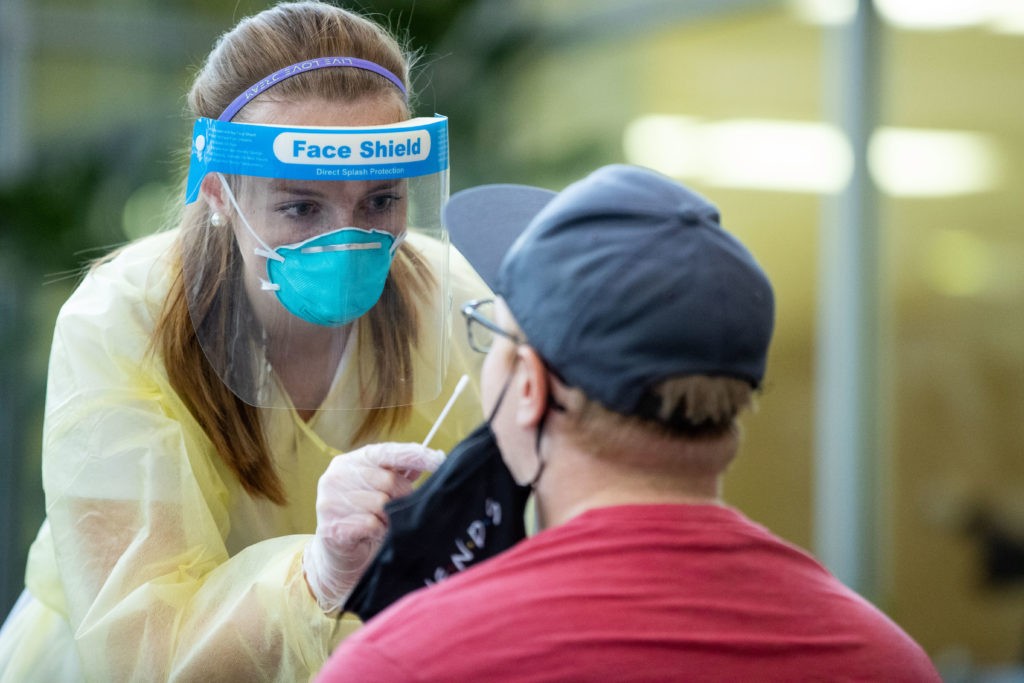
Utah has seen a steady decrease in testing for COVID-19 over the past three months. BYU officials said they are not concerned about the decrease in the number of tests on campus but are looking forward to wider vaccine distribution.
Dr. Keith Willmore from the BYU Student Health Center said he is not concerned about the number of tests because the percent positive is low. He said of every 200 tests taken by students at the Health Center in the past weeks only two or three on average come back positive.
According to BYU’s COVID-19 Updates website, there were two active cases connected to BYU as of April 25. The data is based on the number of cases reported to the university each week from different sources. These include random testing, self-reporting, the BYU Student Health Center, the Healthy Together app, the winter semester entry testing and focused, risk-based testing.
“The downturn in testing occurred before vaccines were made available for the student population, so we don’t think vaccines played a role in the downturn here at BYU,” Willmore said.
The decrease in tests can probably be attributed to masks, social distancing and the fact that 4,000 students have already recovered from COVID-19 and an estimated 4,000 more contracted the virus without knowing, he said.
While the data on decreasing positive cases is encouraging, Willmore said he is worried students will become less compliant to BYU COVID-19 related policies.
BYU Digital Communications Director Natalie Ipson said the safety and well-being of BYU’s students, staff and faculty is the university’s top priority. She said BYU still requires face masks, physical distancing, limited events and activities, and limitations on social gatherings.
“Although we’re encouraged by the increasing availability of COVID-19 vaccines and the low number of active COVID-19 cases on campus, there is still a need to maintain vigilance over the next critical weeks and months until vaccines become even more readily available,” Ipson said.
Willmore encourages students to get tested if they are feeling symptoms, even if they have already had COVID-19 or been vaccinated.
BYU student Max Williams, a public health student from Salinas, California, was recently tested after exposure to COVID-19 by a roommate. Williams said in his opinion the saliva test isn’t as invasive as the nasal test. He had already received the first dose of the Moderna vaccine when he was exposed to the virus and his tests came back negative.
Willmore said the Student Health Center is offering patients a choice between the Moderna and Johnson & Johnson vaccine right now. He said an additional advantage of being vaccinated is avoiding being placed in quarantine when exposed to someone with COVID-19.




